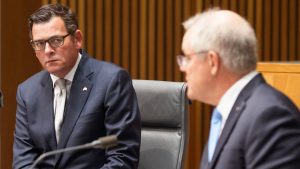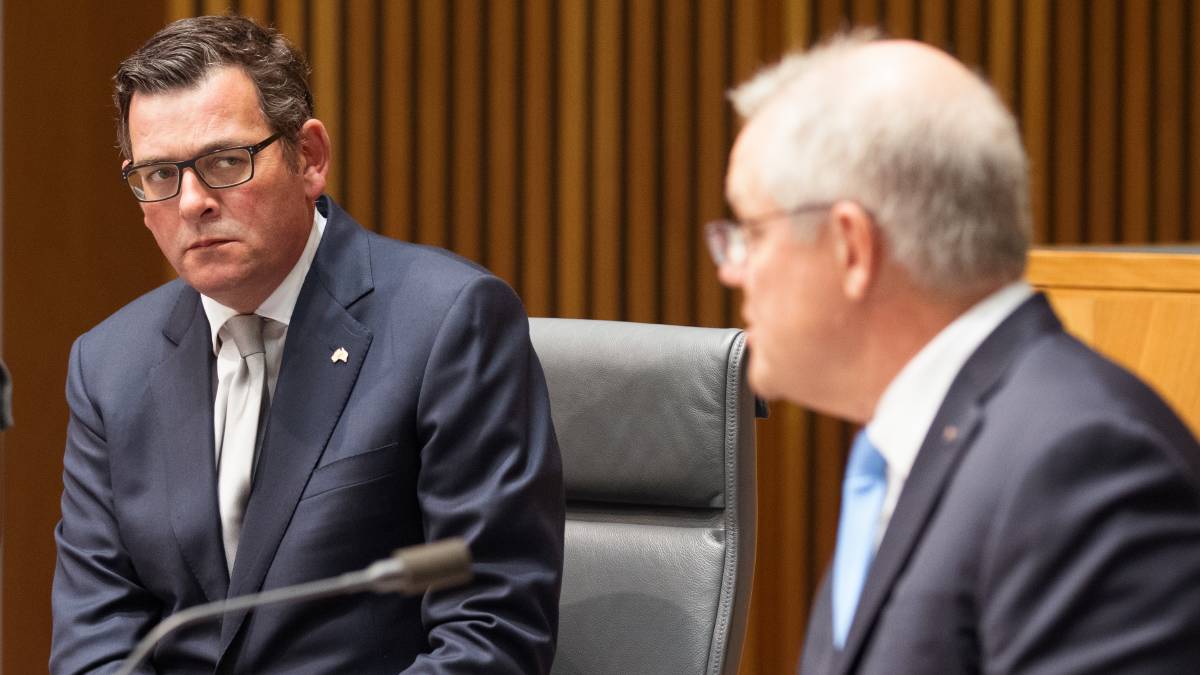
Overall, from the vantage point of April 2021, Australians are in a self-congratulatory mood about the national response to COVID-19.
Are we being realistic, or a touch hubristic? Infection rates have been kept very low, but then, we had a lot going for us – Australia is an island, our settlement pattern is relatively low-density, and the population is younger and healthier than in many European countries.
In a federation, different levels of government have inevitably been involved. While the federal government designed the economic response, state and territory governments have been responsible for implementing public health measures designed to keep the virus under control.
Even allowing for the pressure of circumstances, there have been some surprising lapses.
The Victorian government has come under special scrutiny, due to its decision, in March 2020, to use private security guards rather than police officers to ensure those in hotel quarantine kept to the rules. The guards proved to be poorly trained in infection control and were inadequately supervised. A number caught COVID from those they were guarding and as a result the virus escaped into the wider community.
The consequences were severe. With the number of infections rising rapidly, the Victorian government imposed a particularly draconian and lengthy lockdown on residents and businesses across the state, lasting from July until October 2020. It was widely agreed that Victoria’s choice of private security guards had proved disastrous.
Not surprisingly, the public wanted to know who had been responsible for this crucial decision, and how had it been made. It has truly been said that success has many parents, while failure is always an orphan. A board of inquiry chaired by retired judge Jennifer Coate struggled to determine who should be held to account.
The board found that the decision to use private security guards had not emerged from a clearly documented process, but was, rather the product of a tangled series of text messages, phone conversations and emails. There had been no clear-cut point of choice. In the end, the decision appeared to have been made by no one.
There were mitigating circumstances. Time was short. The pandemic was extremely virulent and the public was terrified. But, as the inquiry’s report, tabled in December 2020, noted
the fact remains that not one document was produced to the inquiry that demonstrated a contemporaneous rationale for the decision to use private security as the first tier of enforcement, or an approval of that rationale in the upper levels of government. Such a finding is likely to shock the public.
The system, such as it was, had let Victorians down.
Whether they retained any capacity to be shocked by it is debatable. A Royal Commission into the Management of Police Informants had just revealed that more than a thousand criminal convictions were potentially unsafe because the lawyer representing the accused had also been engaged by police as an informant.
Still, the public had the right to expect that some semblance of rational decision-making would be observed.
According to the theory, alternative courses of action are assembled in a methodical fashion, and then a clear process is used to choose between them.
In practice, even the simplest decisions are pushed out of shape by the context in which they are made and by the relative power of the players involved.
But process remains important. Process tells those involved what should happen next and above all, it tells them who is responsible for what.
Crises, even when partially foreseen, have a way of sidelining process.
Australia had a pandemic plan, devised at the time of the threatened swine flu epidemic of 2009, but it was soon overtaken by the politics of a new and unprecedented threat. Premiers and chief ministers quickly realised that public opinion favoured stern action to keep the virus out. Border closures, while in theory unconstitutional, became the policy mechanism of choice. Only NSW succeeded in keeping control through public health measures.
The rewards for strong action were palpable. In Western Australia, an already strong premier became a superhero. In Victoria, despite the hotel quarantine debacle, Premier Dan Andrews remained politically popular. In NSW, Gladys Berejiklian survived a scandal in her personal life that would otherwise have buried her politically.
It would be a mistake to rely too much on the politics, though. There is still a long way to go before we see the end of COVID-19.
With a population almost entirely free of the virus, many may question whether they need to be vaccinated at all. CSL, which has a contract to manufacture the AstraZeneca vaccine, will need time to ramp up production. It will be a while before the national vaccination program is fully implemented.
Whatever happens, the states and territories will continue to play a crucial role. It remains to be seen whether, given the many challenges they face, they are up to the job. There is increasing dependence on political leadership, but leadership is only as effective as the calibre of the senior public servants who form the link between the politics and the doing of policy.
The Victorian experience suggests that, even in one of the nation’s premier public services, politicians and public servants may lack the experience to organise themselves effectively in a crisis.

